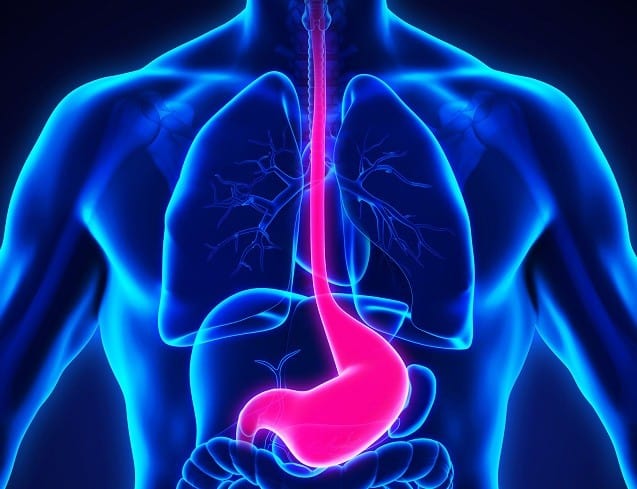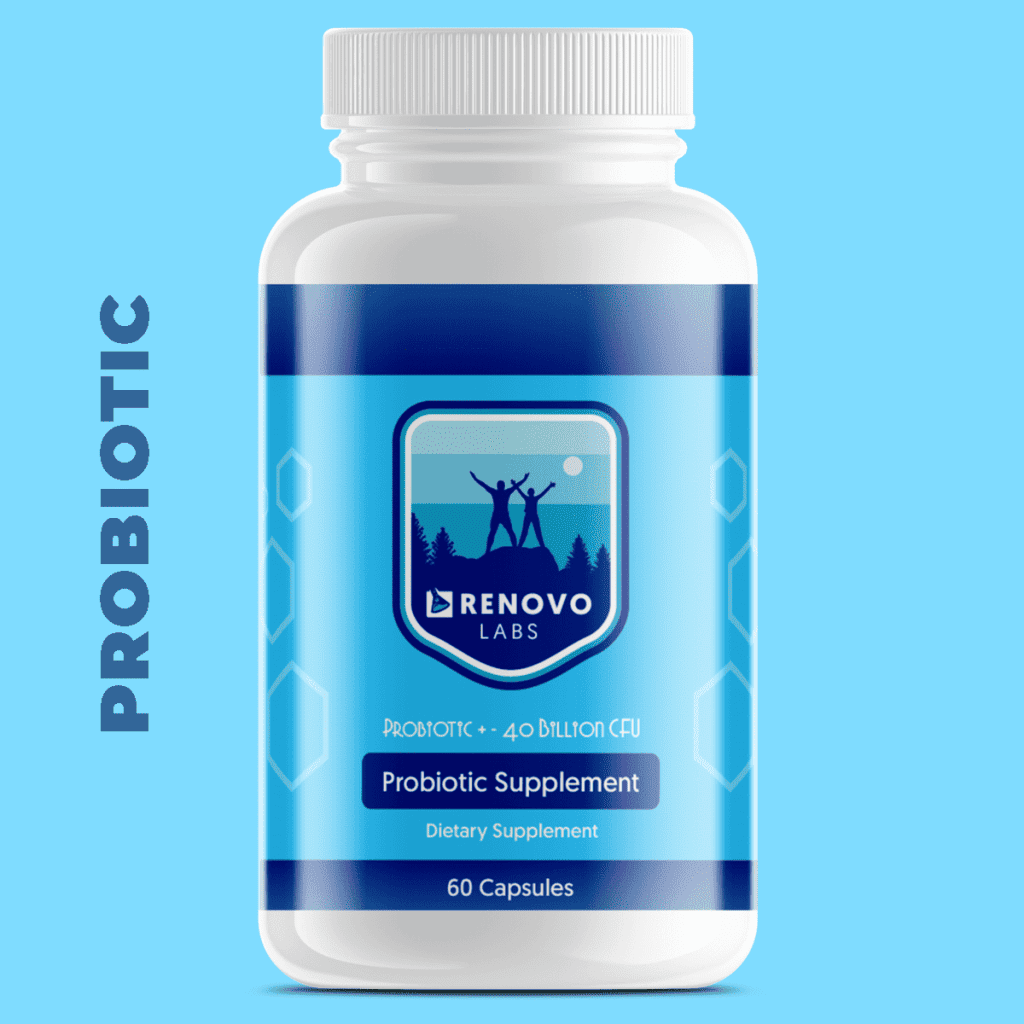Do you suffer from acid reflux? If so, you’re not alone. Millions of people around the world struggle with this uncomfortable condition. Acid reflux is a common issue that affects people of all ages, and it can be caused by a variety of factors. In this post, we’ll explore what acid reflux is and provide you with five tips to help you get rid of it fast.
What is Acid Reflux?
Acid reflux, also known as gastroesophageal reflux disease (GERD), is a chronic digestive disorder that affects millions of people worldwide. It occurs when the stomach acid flows back into the esophagus, causing irritation and discomfort. The condition can cause a burning sensation in the chest and throat, and other uncomfortable symptoms such as regurgitation, difficulty swallowing, and a sour taste in the mouth.
The causes of acid reflux can vary from person to person, but some common triggers include certain foods, such as spicy or fatty foods, caffeine, and alcohol. Obesity, pregnancy, and smoking can also increase the risk of developing acid reflux. Certain medications, such as aspirin and ibuprofen, can also contribute to the development of the condition.
What Causes Acid Reflux?
Acid reflux is a condition that occurs due to a variety of reasons. Some of the most common factors that can cause acid reflux are explained below:
- Eating large meals or lying down immediately after a meal can cause acid reflux by putting pressure on the stomach and forcing acid up into the esophagus.
- Being overweight or obese can also lead to acid reflux as it increases the pressure on the stomach and lower esophageal sphincter.
- Eating a heavy meal and then lying on your back or bending over at the waist can also cause acid reflux.
- Snacking close to bedtime can lead to acid reflux as it gives the stomach less time to digest the food before lying down.
- Certain foods can trigger acid reflux in some people. These foods include citrus, tomato, chocolate, mint, garlic, onions, or spicy or fatty foods.
- Certain beverages can also cause acid reflux. These include alcohol, carbonated drinks, coffee, or tea.
In addition to the above-mentioned factors, there are other causes of acid reflux as well. Stress, smoking, and some medications can also lead to acid reflux. Therefore, it is important to identify the underlying cause of acid reflux and take necessary steps to manage the condition.
The Importance of a Healthy Microbiome With Digestive Issues
The microbiome is a complex ecosystem of trillions of microorganisms that live in the human body. These microorganisms are responsible for a variety of important functions, including digestion, nutrient absorption, and immune system regulation. An unhealthy microbiome can cause a range of health issues, including acid reflux, bloating, and even depression.

Acid reflux, in particular, is a common condition that can have a significant impact on your quality of life. It occurs when stomach acid flows back up into the esophagus, causing a burning sensation in the chest. While there are many factors that can contribute to acid reflux, an imbalanced microbiome is one of the primary culprits.
There are many things you can do to support a healthy microbiome and reduce your risk of acid reflux. One of the most effective ways to do this is by taking a high-quality probiotic supplement, such as Renovo Labs Probiotic+. This supplement contains a blend of beneficial bacteria that can help improve your gut health and restore balance to your microbiome. By doing so, it can reduce inflammation, improve nutrient absorption, and protect against harmful pathogens.
** These statements have not been evaluated by the Food and Drug Administration. This dietary supplement product is not intended to diagnose, treat, cure or prevent any disease **
5 Tips to Get Rid of Acid Reflux
Acid reflux can be a painful and uncomfortable condition. While the five tips listed below can help alleviate symptoms, it is important to remember that everyone’s body is different and what works for some may not work for others. It may take some trial and error to find the right approach for you.
- Eat smaller, more frequent meals throughout the day: Consuming smaller, more frequent meals can help reduce the likelihood of acid reflux. This is because eating too much at once can cause the stomach to become too full, which can trigger symptoms. Eating smaller meals can help prevent this from happening, while still providing your body with the nutrients it needs.
- Avoid trigger foods and beverages: Certain foods and beverages have been known to trigger acid reflux symptoms. While triggers can vary from person to person, common culprits include citrus fruits, tomatoes, chocolate, mint, garlic, onions, spicy or fatty foods, alcohol, carbonated drinks, coffee, and tea. By avoiding these triggers, you may be able to reduce the frequency and severity of your symptoms.
- Don’t lie down right after eating: Lying down immediately after eating can increase your risk of acid reflux. This is because when you lie down, gravity is no longer helping to keep stomach acid where it belongs. Instead, try to wait at least three hours after eating before lying down.
- Elevate your head when sleeping: Elevating your head when sleeping can help prevent acid reflux symptoms. This is because when you sleep with your head elevated, gravity helps keep stomach acid in your stomach where it belongs. You can achieve this by using a wedge pillow or raising the head of your bed by six to eight inches.
- Lose weight if you’re overweight or obese: Excess weight can put pressure on your stomach, which can increase your risk of acid reflux. Losing weight can help reduce your risk of acid reflux and improve your overall health. However, it is important to lose weight in a healthy and sustainable way, rather than through crash dieting or extreme measures.
Treatment for a More Severe Form of Acid Reflux: Gastroesophageal Reflux Disease (GERD)
GERD is a more chronic and severe form of acid reflux that can lead to more serious health issues if not managed properly. Essentially, while anyone might experience occasional acid reflux, consistent and persistent symptoms are typically diagnosed as GERD.
A 2023 publication from the National Institutes of Health discusses the best treatments for GERD acid reflux, and they include:
Lifestyle Modifications
Lifestyle changes are fundamental in treating GERD. These include:
- Weight Management: Losing weight if you are overweight as it’s a significant risk factor.
- Eating Habits: Avoid eating close to bedtime and maintain upright posture after meals to prevent reflux.
- Dietary Adjustments: Though controversial, some suggest avoiding foods and drinks that trigger reflux like chocolate, caffeine, spicy foods, citrus fruits, and carbonated beverages.
Medical Therapy
For those who don’t find relief through lifestyle changes alone, medications are the next step:
Antacids and Acid Blockers: Includes over-the-counter options like famotidine and cimetidine, and prescription medications such as proton pump inhibitors (PPIs) like omeprazole.
Prokinetic Agents: Used to help quicken stomach emptying, but their use is limited due to potential side effects.
Surgical and Endoluminal Therapies
Surgery may be an option for those who do not respond to medical treatment or who wish to avoid long-term medication use:
Surgical Options: Procedures like Nissen fundoplication or bariatric surgery in obese patients can be effective.
Endoluminal Therapies: Less invasive options like magnetic sphincter augmentation or transoral incision-less fundoplication show promise, particularly in improving symptoms and reducing dependency on medications.
Each treatment has its advantages and considerations, and the choice of therapy should be tailored to your specific symptoms and medical history. Always consult a healthcare provider to determine the best course of action for your situation.
Unlock Your Gut Health Potential with DNA Testing
Unlocking your gut health with DNA testing can be a game-changer for understanding your body and improving your overall well-being. By analyzing your DNA, scientists can uncover valuable insights into how your unique genetic makeup influences your gut health. This personalized approach allows you to tailor your diet, lifestyle, and even supplementation to optimize your gut microbiome and promote better digestion, immunity, and overall health.
The Benefits of DNA Testing for Gut Health
One of the key benefits of DNA testing for gut health is identifying genetic variations that may predispose you to certain digestive issues or conditions. For example, some people may have genetic variations that affect their ability to break down certain foods or absorb nutrients properly. By knowing your genetic profile, you can make informed choices about which foods to include or avoid in your diet to support optimal gut function.
DNA testing can also reveal information about your gut microbiome—the community of bacteria and other microorganisms that live in your digestive tract. Research has shown that the composition of your gut microbiome can influence various aspects of your health, including your immune function, metabolism, and mood. With DNA testing, you can gain insights into the diversity and balance of your gut microbiome, allowing you to take targeted steps to improve its health.
Additionally, DNA testing can help you identify specific probiotic strains that may be beneficial for your gut health based on your genetic profile. Not all probiotics work the same for everyone, so knowing which strains are most compatible with your unique genetic makeup can help you choose the most effective supplements.
Overall, unlocking your gut health with DNA testing empowers you to take a proactive approach to your health and well-being. By understanding your genetic predispositions and the unique characteristics of your gut microbiome, you can make personalized choices that support optimal gut health and enhance your overall quality of life. So, if you’re looking to optimize your gut health and feel your best, DNA testing may be worth considering.
Learn More About Your Gut Through Your DNA
Did you know that your genetics can play a role in your gut health? With Renovo Labs DNA Testing services, you can gain insights into your genetic profile and susceptibility to gut health issues or vitamin deficiencies. Armed with this knowledge, you can modify your diet, supplementation, and lifestyle to optimize your gut health and enjoy greater energy levels, overall health, and improve your mood.
Renovo Labs DNA Testing services can provide you with an easy-to-understand report that includes personalized recommendations for improving your gut health. These recommendations may include dietary changes, probiotics, supplements, and lifestyle modifications. By following these recommendations, you can take control of your gut health and reduce your risk of acid reflux.
Don’t let acid reflux hold you back. By following these tips and improving your gut health, you can get rid of acid reflux for good. With the help of Renovo Labs Probiotic+ and DNA Testing services, you can take control of your gut health and enjoy a healthier, happier life.





 Excludes DNA Testing
Excludes DNA Testing